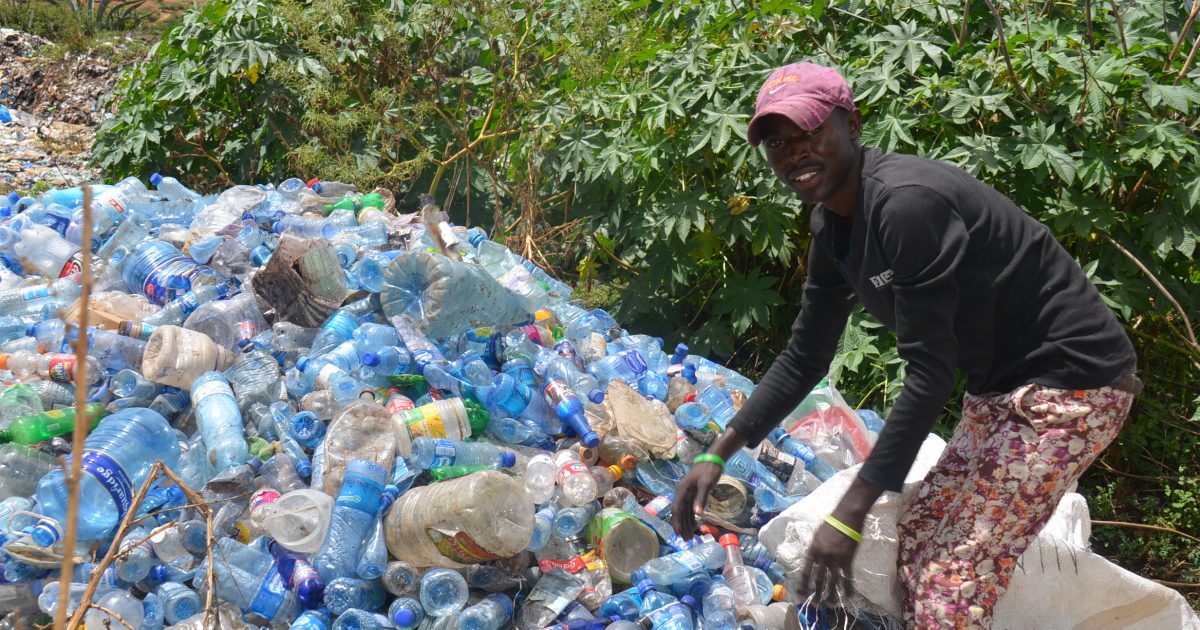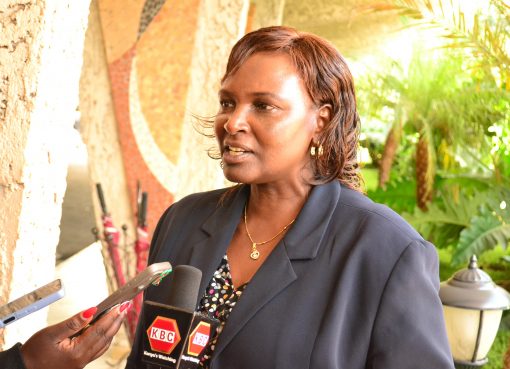Greenpeace Africa, an environmental lobby group, is supporting calls by global health experts on the need to adopt re-usable materials in the wake of Covid 19 pandemic.
In a statement released to media houses recently, the body’s Africa Senior Political Advisor, Fredrick Njeru, says industrial players should adopt the use of re-usable, especially in the manufacture of face masks as one way of not only protecting against environmental degradation but curbing the spread of Covid-19 disease.
He noted that owing to the urgent need for face masks to curb the rapid spread of the deadly virus, unscrupulous traders had taken advantage of the shortage by collecting used masks, washing them before selling them to unsuspecting Kenyans, jeopardizing their lives in the process.
“It is shocking to learn that, in Kenya for instance, unscrupulous traders have been collecting used face masks, washing them and re-selling them to unsuspecting members of the public. The traders have taken advantage of COVID-19 to risk the lives of unsuspecting members of the public,” said Njehu.
“It is crucial for businesses, and governments to know that as they re-open, reusable systems can be deployed safely to protect both the environment, workers and customers. All that is needed is for proper hygiene practices to be followed’’, he added.
On Monday this week, over 100 health experts from eighteen countries, several of them from Africa signed a joint statement, assuring retailers and consumers that re-usables are safe during COVID-19, pushing back on claims by the plastic industry giants.
The health experts including Greenpeace USA and UPSTREAM, both members of the Break Free From Plastic movement underscored that disposable products are not inherently safer than re-cycled and that reusable systems can be utilized safely during the pandemic by employing basic hygiene.
“Single-use plastic is not inherently safer than re-usable and causes additional public health concerns once it is discarded. The promotion of unnecessary single-use plastics to decrease exposure to the COVID-19 negatively impacts the environment, marine life and water systems compared to the safe use of re-usable face masks, containers and utensils,’’ said Rico Euiridou, a South African Environmental Epidemiologist and one of the signatory to the agreement.
The statement endorsed by scientists, academics, doctors, and specialists in public health and food packaging safety around the world, argues that household disinfectants have been proven effective at disinfecting hard surfaces, such as re-usables.
This follows several temporary pauses on plastic bans across the world and increased bans on re-usable by shops amid COVID-19.
On June 3rd this year, Greenpeace Africa announced plans to start screening a documentary to help sensitize the world on the adverse effects of plastic materials to the environment.
The documentary which is currently on digital online platform was expected to coincide with this year’s World Environment Day which was celebrated on June 5th.
The film, The Story of Plastic, directed and produced by Deia Schlosberg, exposes the astonishing global environmental, climate, justice, and health impacts of the plastic industry.
The virtual screenings of the film were to run between the 3rd and 5th June, according to a statement sent to media houses by Greenpeace Africa Head of Communications, Hellen Dena.
“The Story of Plastic depicts a global plastic crisis beyond anything most of us have ever imagined and reveals how our perceptions of it have been manipulated. The plastics industry is producing more single-use plastic than ever before and is working to increase production drastically.
Through compelling reporting on three continents and original animation, the film exposes the causes and effects of the crisis but also introduces unsung heroes fighting to stop the mass production of plastic and to hold the industry accountable,” read part of the press statement.
In mid last year, President Uhuru Kenyatta announced a ban on single-use plastic products in all protected areas as Kenya sought to curb the plastics hazard just two years after the country banned the use of polythene carrier bags.
The ban took effect on 5th June this year.
Experts estimate that it takes at least 1,000 years for the plastics to decompose a fact that perhaps explains why most parts of the country are littered with all sorts of their end products.
In the US, the manufacture and free use of the bags have continued to be blamed for a myriad of environmental woes that have dogged the country recently,
For instance, wastes from used bags have been blamed for interfering with the ecosystem by clogging water pipes and storm rains, especially during flash floods, which have become synonymous with the country.
It is estimated that, a total of 380 billion bags are used annually in the US, translating to 1,200 bags for every resident per year.
Out of these, 100 billion are plastic shopping bags.
It is also estimated that only one 1 to two percent of the bags end up being recycled.
According to UNEP, there are 46,000 pieces of plastic litter currently floating in every square mile of our oceans.
These materials have been responsible for the deaths of thousands of marine animals and up to more than one million birds each year due to plastic pollution.
The UN Environment Programme (UNEP), annually organizes events for World Environment Day, which encourages worldwide awareness and action for the protection of the environment.
The theme for this year’s World Environment Day, was ‘Time for Nature,’ with a focus on its role in providing the essential infrastructure that supports life on Earth and human development.
This focus is expected to provide an opportunity for driving the momentum and public awareness of nature as a key aspect in the lead up to the 15th meeting of the Parties (COP 15) to the Convention on Biological Diversity (CBD).
COP 15 was expected to take place in October 2020, but was re-scheduled for 2021, due to the COVID-19 pandemic.
By Samuel Maina





